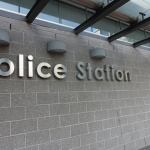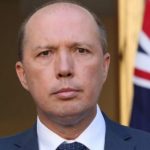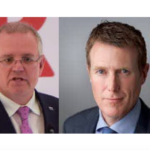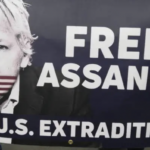Social Justice Advocate: An Exclusive Interview with Renee Eaves

Renee Eaves was four months pregnant when Constable Barry John Donnelly entered her home and arrested her on driving offences.
The night that followed was hell: police at the Roma Street Watchhouse denied her medication or a bucket to vomit in, and Donnelly stood by laughing as another arrested person mocked and abused her for being sick in the cell.
Ms Eaves says that prior to the arrest, Donnelly had shown an “unusual interest in her life”.
Between 2002 and 2006, she estimates he had contacted her between 15 and 20 times, often asking about her boyfriend, her business and whether she had become single.
Donnelly entered Ms Eaves home when she was pregnant and arrested her for disqualified driving, an allegation she disputed and was eventually found not guilty of. She went on to take him and the State of Queensland to court for false imprisonment – making history as the first person to do this without the aid of a lawyer, and win.
Since then, Ms Eaves has become a vocal advocate for police reform in Queensland, a board member on the Queensland Council for Civil Liberties, and was nominated for an Australian Human Rights award for raising awareness about issues surrounding excessive force, accountability and transparency.
Sydney Criminal Lawyers® sat down with Ms Eaves to talk about her experiences, thoughts on the state of policing in Queensland, and her hopes for reform.
Could you describe the circumstances of your arrest, how did it affect you?
So the officer [Donnelly] had already pulled me over numerous times, and he was appalling in the way he presented. I had a number of interactions with him that went really badly.
Everybody has that thing when they’re pulled up by a police officer, it’s either “Yes sir, no sir, I’m so sorry sir, please forgive me sir” or “Yeah fair enough, can I just have the ticket.” You’re answering to the law, you’re accountable to the law, you’re not answering to that individual police officer. I think it becomes a problem when the police officer thinks that you’re answering to them personally. You’re not. You owe them the same courtesy you owe every fellow human being. No more, no less.
Because I wasn’t sorry to him, in particular, an incident where I was a passenger in a friend’s vehicle, and was being fined for a ‘not properly adjusted seatbelt’ (it was twisted) not giving him the answers that he wanted to hear, it was escalating. I just refused to sit there and smile at the crocodile any longer for these absurd traffic stops, or beg for mercy. Call it ego or pride, I don’t know, I just had to draw the line and tell him to stop, and that he was out of line.
I tried to take out a restraining order against him, I went to the CMC [Crime and Misconduct Commission], Ethical Standards, I went to every single department that was available. However, back then smart phones weren’t around, so collecting evidence wasn’t quite as simple as just grabbing your phone and pressing record, and often the complaints came down to my word against his. At the time, I felt well and truly helpless.
It finally escalated to a point where he came into my home, handcuffed me and took me to the Watchhouse. His claim was I had been driving on a suspended licence. I was pregnant at the time and was treated appallingly. I wasn’t given water or medication or anything that I required. It was just ridiculous, I had no criminal record, there was absolutely no reason for the arrest, no reason to be paraded a block away vomiting in handcuffs, and it turned my entire pregnancy into a nightmare – eventually my son was born two months prematurely.
I was eventually successful in court with regard to the alleged driving offence, so I commenced civil action against this officer for wrongful arrest, assault and deprivation of liberty
You made history in that case, being the first person to self-represent in a case against the Queensland police and win. What made you decide to do that?
A few weeks before going to trial, my lawyers wrote to me and said “it’s just not commercially viable, that the case had been dragged out for so long that even if you win you’re not even going to cover our fees” and I was absolutely hammered. I just couldn’t accept that this officer could abuse his power like this and get away with it. I wasn’t going to surrender, and decided that I’d run the matter myself.
For the next few weeks, I went and sat in on various cases. I sat in on fights over wills, trials over assaults, and all different types cases just learning and getting a feel for the courtroom. Then I just sat on my living room floor and compiled my case.
My civil matter ran for an entire week, and the QPS [Queensland Police Service] fought very fiercely. Every day I felt bruised and belittled, and almost re-assaulted. I remember coming home on the fourth day and falling asleep in the foetal position on the shower floor. I woke up at 2 o’clock in the morning with the cold water running on me.
I think it’s in those low ebbs, those moments of despair, that we discover our true strength. I just got myself up, put my suit back on that was crumbled on the floor, and prepared for the next day at court.
During all my encounters with this policeman, he was in a position of power. He had the handcuffs, he had the pepper spray, and in court he had the barristers and an unlimited cheque book.
Little did I know that with the cards stacked in his favour again, I’d successfully cross-examine this officer, and that when push finally came to shove the judge would see through his smirking, through the play on words, and ordered in my favour.
I won compensatory, aggravated and exemplary damages. The hearing symbolically ended on my sons 4th birthday; and I walked up to him and told him that I forgive him. Happy people don’t do what he did. I did not want to carry the burden of hate. This case instigated a lot of growth in me as a person.
How did you find that process, teaching yourself law and compiling your case? Most people would typically have given up after their lawyers told them their case was unwinnable.
It was really difficult. Like most people I used to be full of lawyer jokes, but now I know why they charge what they do.
People often call me wanting advice on doing something similar, part of me wants to encourage them and say “Yes, stand up for your rights, give it a go” but the other part of me doesn’t want to make it sound easy. You can’t just get your pencil and paper, go to court, and expect the judge to see the truth, it’s not as simple as that.
The police are often 100 steps ahead, their people do this every day. They will sit in court and tell bare faced lies. I don’t think the average Australian realises what they’re actually up against because most of us like to believe that doesn’t happen. Finding a great lawyer that has the passion for the topic is a good start if you can afford it.
Since the trial you’ve been really active as a justice advocate in Queensland. Have you had any other victories or high points?
Being invited to join the Queensland Council for Civil Liberties was definitely a high point, I’ve always followed them, and they align with my values. When they called me to join I was really quite honoured. I enjoy the meetings being surrounded by likeminded people.
Being able to support a police officer against his superiors has definitely been a high point. Because I’ve never been anti police. I’m anti brutality. There was a video that came out of Gold Coast – police bashing an innocent guy, and I’ve been there as court support for the officer that was charged with giving this footage to the media.
With a lot of cases you just have to push and push, and along the way you cop a lot of knocks. Every time something finally leans to the people that are being courageous, it’s a high point, it gives you a second wind and a bit more energy to keep going.
I guess the best thing now is that I already know what they’re up to, whereas someone coming in fresh and green might not. I’m someone that’s got the benefit of hindsight, that’s been there and done that, and have supported other victims emotionally because it takes a big toll, and I of course know first-hand how it feels.
I’m glad you brought up the video. What do you see as the general state of policing in Queensland at the moment? With all the recent videos and assaults they seem a bit out of control.
The problem I see is you have police investigating police. The Crime and Corruption Commission investigate under 3 per cent of complaints, and refer almost all of the rest back to the Ethical Standards Command [run by police]. It doesn’t matter where you go, say you go to the Attorney General, she could refer you to the Police Minister, and the Police Minister will refer you to Ethical Standards. It does not matter which avenue you go down, you end up being referred back to Ethical Standards, who are police.
It’s like everyone’s related, everyone’s a cousin. There’s absolutely no external body, and this makes it a rife breeding ground for potential corruption.
At the moment, the Crime and Corruption Commission are putting-out a call for public comment on legislation that will silence allegations of corruption until they are substantiated. So what does that look like? You’ve got the 3 per cent of complaints they investigate, and the other 97 per cent that have been referred back to police. What they’re trying to do is shut people up and I think that is dangerous.
Do you think there’s a chance for reform in Queensland, or do you think that culture is too deeply ingrained?
The way it stands at the moment, with police policing themselves, there is no incentive for them to make a decision to change that. Why would they do that to themselves?
Everything is leaning their way, to them it’s not broken, why fix it? We absolutely need an independent person or organisation to come in and address what’s really going on. It takes the same energy to cover things up as it does to fix it. But you are dealing with a very deep culture. For us to have a chance at change we need a truly independent body. I am forever optimistic though.
That’s a pretty horrible reality. On a brighter note, I was hoping to get an idea of your plans for advocacy in the future?
Sure. Well I get a lot of requests from Sydney and Melbourne, so one day when the time is right and if its offered, I wouldn’t mind coming to Sydney – I’m definitely open to any offers.
What I would love to do is join the panel on studio 10 and discuss all topics. Women’s issues particularly! That’s my dream position right now.
I’ve also put my experience down in a book that I keep extending, and need to find a publisher to push that along too. The story has also been turned into a script for a film, the scriptwriter that penned Lindy Chamberlain’s story has done a great job of the script. He was perfect due to his experience with Lindy’s story, so I’m hoping a film will get the message out and paint a really clear picture of what’s going on here.
The most unfortunate part I guess is the things I most want to talk about have suppression orders or confidentiality agreements on them, and I personally think there’s too much of that going on.
For a Government that’s constantly talking about how transparent and accountable they are, I would seriously question that transparency when it comes to the QPS. It has not been my personal experience that accountability or transparency has been a priority to them.
But no one can say I didn’t give it a strong nudge right?
Thank you for your time, and keep up the great work.
Receive all of our articles weekly
Author






